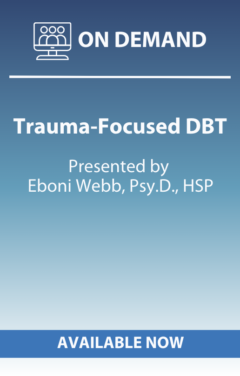Description
This workshop is on-demand, content will be available immediately after purchase.
Recorded footage and all course content (certificate, videos, quiz) will be available until May 26, 2025.
Registration will close on May 20, 2025.
This webinar will examine reading and written language disorders from a brain-based educational perspective in order to generate targeted interventions for students with learning disorders. The primary emphasis of the morning discussion will be to differentiate “dyslexia” from other reading disorders, as well as to classify developmental reading disorders into four distinct subtypes. There will be a discussion matching each reading disorders’ subtype with scores of evidence-based interventions. Specific cognitive constructs underscoring the reading process including phonemic awareness, phonological processing, orthographic processing, working memory, and executive functioning will be featured. In addition, the Feifer Assessment of Reading (FAR) battery, a diagnostic achievement test, will be introduced as well.
With respect to written expression, there will be a discussion on current learning trends in Canada in the aftermath of the pandemic, as well as gender differences in written language skills. In addition, three specific subtypes of writing disorders will be outlined, with particular emphasis on how “frontal lobe” processes such as attention, working memory, and executive functioning impact each subtype. There will be a review of five essential steps for effective written language instruction, as well as key intervention strategies for written language disorders. A review of the Feifer Assessment of Writing (FAW) battery will be shared, as well as other key instruments to diagnose children with written language disorders consistent with dysgraphia.
8:30am – 10:00am
* Literacy rates in Canada
* Defining developmental dyslexia
* Four universal truths of reading
* Establishing the main neurodevelopmental pathways for reading
10:00-10:15 *BREAK*
10:15-12:00
* Four subtypes of reading disorders
* Interventions for dyslexia subtypes
* Introduction to the Feifer Assessment of Reading (FAR)
12:00-1:00pm *LUNCH*
1:00 – 2:30
* Prevalence of written language disabilities
* Why do boys struggle more than girls with written language?
* Eight core cognitive constructs underscoring written language
2:30-2:45 *BREAK*
2:45-3:45
* Three subtypes of written language disorders
* Five essential components to develop written language proficiency
* An introduction to the Feifer Assessment of Writing (FAW)
3:45-4:00 * Questions
Education and Clinical Professionals: All education and mental health or healthcare professionals who work with children or youth including, but not limited to K–12 Classroom Teachers, School Counsellors, Learning Assistance/Resource Teachers, School Administrators, School Paraprofessionals including Special Education Assistants, Classroom Assistants and Childcare Workers • All other professionals who support behavioural challenges and complex learning needs including but not limited to: Nurses, Social Workers, Psychologists, Clinical Counsellors, Family Therapists, Occupational Therapists, Speech Language Pathologists, Addiction Counsellors, Youth Workers, Mental Health Workers, Probation Officers and Community Police Officers.
Steven G. Feifer, D.Ed., ABPdN is dually trained as both a nationally certified school psychologist and board certified pediatric neuropsychologist, having completed research stints at the National Institutes of Health. He has more than 20 years of experience working directly in the schools, and is currently in private practice assessing children at the Monocacy Neurodevelopmental Center in Frederick, Maryland. Dr. Feifer has earned numerous distinctions throughout his career including being awarded the Maryland School Psychologist of the Year, the National School Psychologist of the Year, and recently received the Outstanding Contribution to the Education and Training of Psychologists award by the Maryland Psychological Association. He remains a popular speaker at many state and national conferences, and has authored eight books and numerous research articles on learning and emotional disorders in children. Lastly, Dr. Feifer has also authored three tests on diagnosing learning disabilities in children, all of which are published by PAR.
| Registration | Early bird Fee | Regular Fee |
|---|
| Individual Enrollment | $269.00 | N/A |
All fees are in Canadian dollars ($CAD).
Group rates and student discounts are available. Please contact webinars@jackhirose.com for more information.





